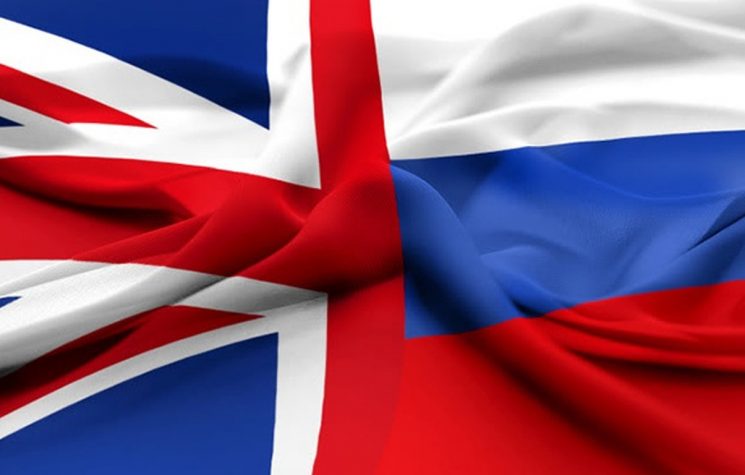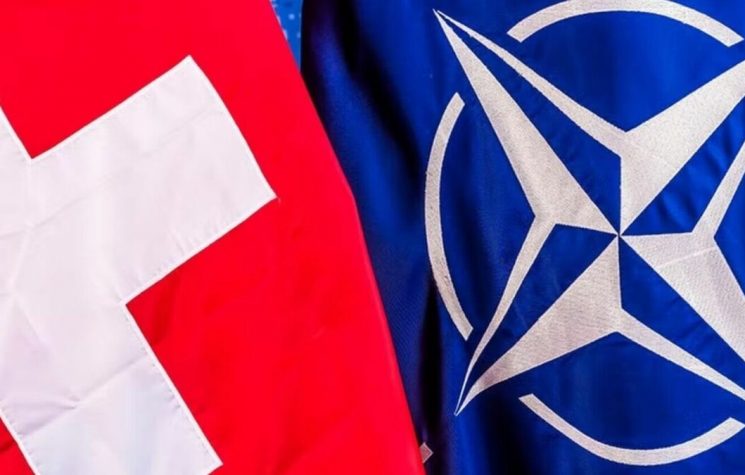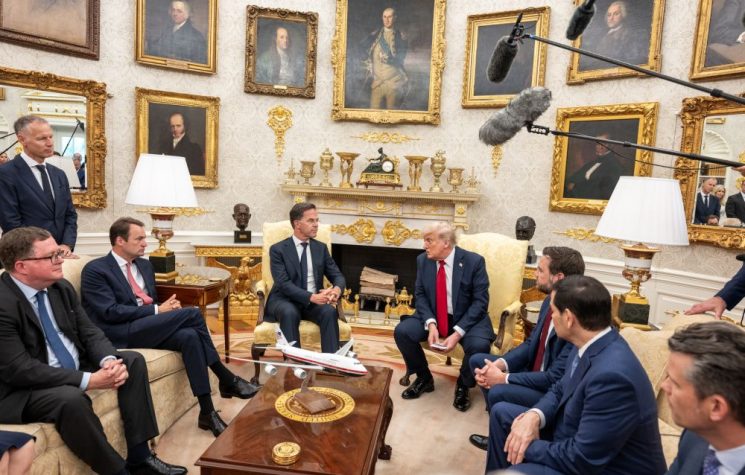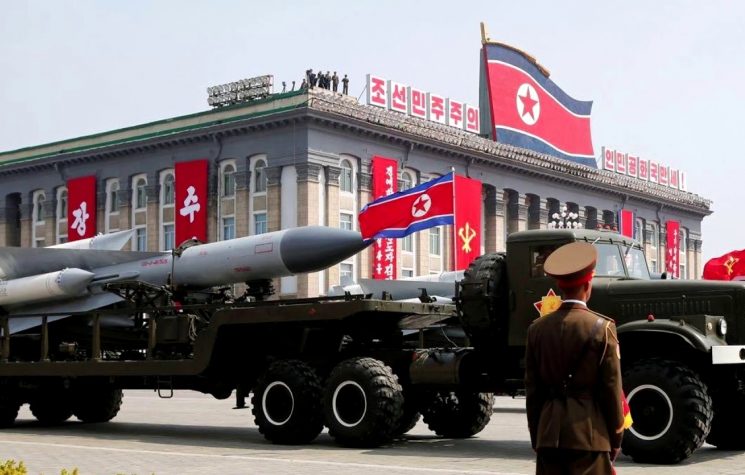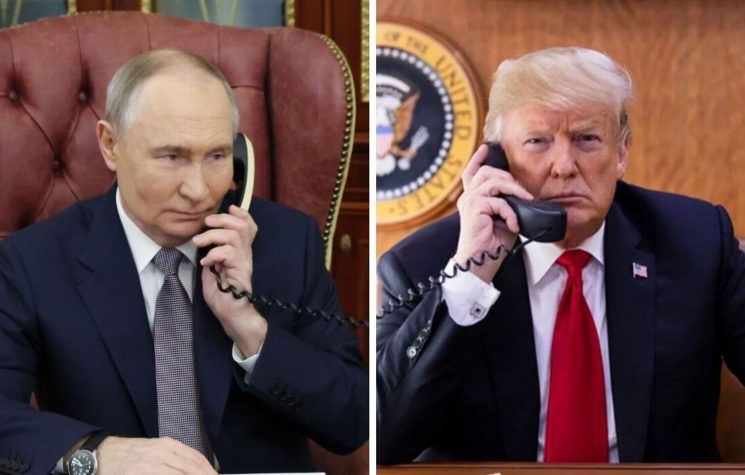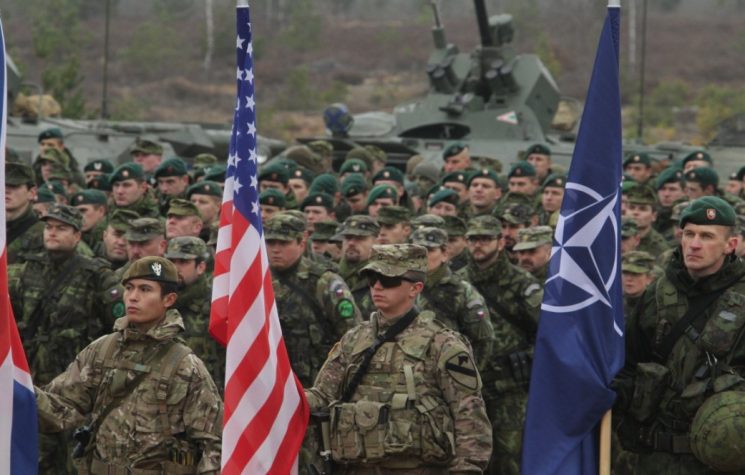The propaganda drive against the Moscow government is gathering pace, Brian Cloughley writes.
In an era when sensible folk believe that nations should cooperate in doing everything possible to counter the hideous plague that has beset us, there remain many dedicated zealots in Western countries who believe that confrontation is more important than efforts to save lives. These activists detest Russia and China and seek to destroy their governments’ efforts to prosper economically while securing their borders.
Although China represents the greater commercial threat to the United States, the establishment in Washington, aided by the United Kingdom, its suitably slavish adherent under the stumbling administration of Boris Johnson, has recently intensified its focus on Russia, whose leader it wishes to overthrow. The core reasons for this energetic campaign are economic rather than ideological, and closely tied to the increasing U.S. production of expensive weaponry with which to combat the supposed threat from the East.
The happy days of the Cold War are with us once again.
The propaganda drive against the Moscow government is gathering pace, and the Western mainstream media are suitably cooperative with the plethora of “official sources” who feed them anti-Russia bits and pieces that are devoid of substance and evidence but tantalising enough to attract uncritical public attention. Open actions by governments in Washington and London, usually military but also economic, are presented with a nationalistic slant designed to guide its targets into belief. The campaign is a fairly good example of psychological warfare, to which the United Kingdom, for example, is devoting more time and money.
The U.S.-Nato military alliance is no foot-dragger in angling news reports and its description of “interceptions” of Russian aircraft on March 29 is a good example. It is a comparatively minor illustration, but demonstrates how the Washington-Brussels team go about reporting international affairs. The Nato media release declared that “In all, NATO aircraft intercepted six different groups of Russian military aircraft near Alliance airspace in less than six hours.”
The Russian aircraft were flying in international airspace and obviously were not going to take any action against any Nato country or anyone else, for that matter. But Brigadier General Andrew Hansen, Deputy Chief of Operations at Nato’s Air Command located at Ramstein in Germany, declared that “intercepting multiple groups of Russian aircraft demonstrates NATO forces’ readiness and capability to guard Allied skies 24 hours a day, 7 days a week, 365 days a year.”
“Allied skies”?
These Russian aircraft were based in Russia and flying, as acknowledged even by U.S.-Nato, in international airspace. This has nothing whatever to do with “Allied skies”.
As is not unusual, there was flexing of the truth in the U.S.-Nato statement which claimed that there were “six different groups” of Russian aircraft. In fact the media release said there were “two groups near Norway’s coast”, then one group over the Black Sea and a maritime patrol aircraft over the Baltic. That makes four “groups” out of the claimed six. But it wasn’t totally untrue (which is what psyops is all about), because there were indeed six interceptions by fighters from Norway, Britain, Belgium, Turkey, Romania, Bulgaria and Italy. (It was, preposterously, a bold Italian fighter jet that “intercepted” the unarmed Il-38 maritime patrol aircraft over the Baltic.) The entire aerial pantomime was performed for media headlines.
On the other hand, there have not been many headlines concerning Russia’s development of the Sputnik V anti-Covid vaccine, because this has been a success, and the West’s mainstream media do not report Russian successes. The site Spaceflight Now does carry details concerning launches of Russian Soyuz spacecraft to the International Space Station, but there is only rarely a mention of this vital shuttle service in such outlets as the Washington Post, which prefers to give prominence to the U.S. private company SpaceX which, although it has managed to conduct space station dockings, is experiencing a series of failures. As one UK newspaper reported the most recent disaster, “SpaceX said the SN11 [rocket] ‘experienced a rapid unscheduled disassembly’. In other words, it blew up.” If it had been a Russian rocket there would have been rather different publicity.
There has been U.S.-Russia space cooperation for about 25 years, and Reuters reported on April 3 that “the Russian government approved extending an agreement on cooperation in space with the United States until December 2030”, which is an admirable and important initiative that will attract no approval or even attention in the halls of the Capitol or the wires of the mainstream media. And to be fair, there is no attempt on the part of Uncle Joe’s administration in Washington to disguise its loathing of Moscow. His Secretary of Defence, General Lloyd Austin, on April 1 “reaffirmed unwavering U.S. support for Ukraine’s sovereignty, territorial integrity and Euro-Atlantic aspirations. He condemned recent escalations of Russian aggressive and provocative actions in eastern Ukraine, and he offered condolences to the minister on the deaths of four Ukrainian soldiers on the 26th of March.”
The Pentagon’s spokesman was far from being concise and enlightening when posed a question about this censure. Specifically he was asked “you said that the Secretary condemned the recent Russian actions… can you be a little more specific one more time about what he is condemning?” The reply rambled but had the merit of publicising the Pentagon’s unquestioning support of the corrupt government in Kiev. His stumbling response was “As I said yesterday, I mean, we’re monitoring the situation with respect to Ukrainian military reports of Russian military placements and forces along the border. We’re — these are Ukrainian military reports. We’re monitoring that very, very closely and we certainly call on the Russians to be more transparent about what this is about but we’ve learned from bitter history not to just take at face value Russian claims of their intentions.”
The Pentagon’s eager acceptance of “Ukrainian military reports” is a prime indicator of U.S. national policy, and it cannot be expected that this will alter, any more than the anti-Russia views of ultra-nationalists in England, one of whom, on the same day as General Austin’s war drumming pronouncements, wrote that “Brussels can’t call itself a force for good when its members are prepared to deal with Putin on vaccines. The EU’s top leaders are warming towards the Russian-made jab, in a propaganda coup for Vladimir Putin.” It is barely believable that a major newspaper such as the Daily Telegraph would countenance publication of such overt malevolence, but in spite of the fact that the Sputnik V vaccine has been approved by 58 countries (although still waiting formal endorsement by the European Medicines Agency), the blinkered bigots are determined to intensify their campaign of hatred. To them it does not matter that such crusades cause deaths.
While many Europeans dislike the policies of Austria’s Chancellor Sebastian Kurz, it is difficult to disagree with his statement about Sputnik V that “There must be no geopolitical blinkers regarding vaccines. The only thing that must count is whether the vaccine is effective and safe.”
Absolutely right. But try telling that to the confrontationists and propagandists whose aim is to encourage the overthrow of leaders who disagree with their policies. Their silly fandangos in the air are intended to increase tension with Russia — and China — and the campaign against Russia’s vaccine has struck a new low in international relations. The Biden administration is brandishing the cudgels of confrontation and the world is a more dangerous place for that.




































